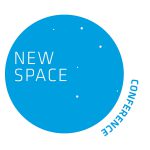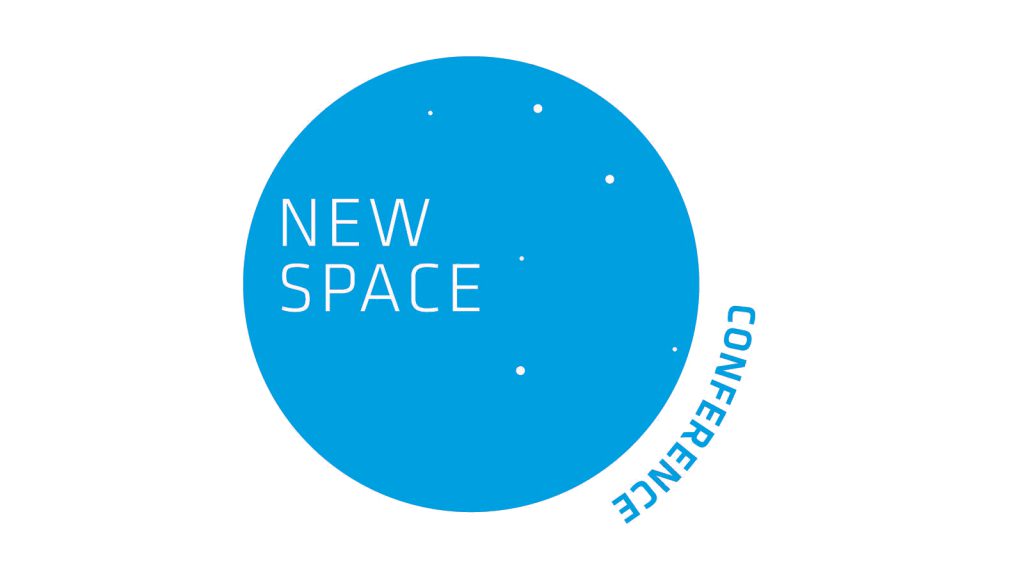In the first space conference in Europe to focus on the newspace industry, NewSpace Europe took place in the heart of Luxembourg City centred around the theme “New Frontiers of Opportunity”. Through a mix of talks, panel sessions and networking opportunities the conference highlighted the huge growth in the sector and the opportunities for budding entrepreneurs and startups to shape and lead the industry.
With over 200 attendees the NewSpace Europe showcased Luxembourg as a rising international player in the growing industry. Deputy Prime Minister Etienne Schneider said “Luxembourg has been firmly focused on the future”. The industry is projected to grow to as much as 1.1 Trillion USD in 2040, so now is a high time to invest in the opportunities of tomorrow. Luxembourg has proved with space initiatives such as SpaceResources.Lu that it is indeed forward-thinking and could be an example for others to follow as it attracts newspace companies to the country.
Opening remarks by @EtienneSchneide @NewSpaceEurope “In its long history, #Luxembourg often took the world by surprise in taking initiatives no one expected” #InspiringLuxembourg #NewSpaceEurope pic.twitter.com/MZHeqWFPLb
— SpaceResources.lu (@spaceRESlux) November 16, 2017
“To move from a factor of 329 billion to 1.1 trillion there has to be a step change” – Our CEO speaks at #NewSpaceEurope pic.twitter.com/9596Ooi1wD
— SES (@SES_Satellites) November 16, 2017
Shortly before the conference, it was announced that the Luxembourg Future Fund (LFF) will invest in Spire and the company will set up its European Headquarters in the Duchy. “As part of the agreement, the Luxembourg government will also provide research and development grants and other funding to support Spire’s activities in the country.” – SpaceNews
Platzer: We have received more “welcome to Luxembourg” emails in last 24 hours than any other location we’ve opened an office. #NewSpaceEurope
— Jeff Foust (@jeff_foust) November 17, 2017
“Europe is the place to be” said Carissa Christensen, CEO of Bryce Space. “This is why Bryce Space is starting a European Venture”.
CEO Carissa Christensen: “Europe is the place to be, this is why @BryceSpaceTech is starting a European venture” #NewSpaceEurope pic.twitter.com/4Uc16fTRX4
— Astropreneurs (@astropreneursHQ) November 16, 2017
As much as there are many great opportunities, there are many obstacles Europe also needs to overcome, as discussed in this panel session. A challenge also is equipping people with the skills of the future as technology rapidly advances. Important is also the right framework for space startups to thrive in Europe.
Our CEO, Niels Buus, is today one of the speakers at the #NewSpaceEurope conference, discussing “Opportunities & Obstacles for Scaling Up Start-Ups in Europe”.
We are one of the proud sponsors of this event in Luxembourg, supporting growth of the NewSpace segment in Europe. pic.twitter.com/rY9trJ4goK— GomSpace (@GomSpace_Aps) November 16, 2017
Lessons on scaling up: The people problem outweighs the tech problem as you grow/ The complexity you need to overcome for space #startups is more than others/The reach and stability of space is unmatched #O3B #globalimpact @SpireGlobal #NewSpaceEurope pic.twitter.com/MYLluXolC0
— Angelica F (@angafernandez) November 17, 2017
A new dynamic that the American organisers at Space Frontier Foundation brought was an insight from the U.S. new space industry and how many established startups such as Planetary Resources see opportunities in Europe. The company aims to launch the first commercial asteroid prospecting mission by 2020 and too has gained support from the Luxembourg government, who are leading the way in securing the rights to space resources. Luxembourg is second only to the US in securing a framework on space resources.
“Regulations can be a driver for advancing in space economy” So important ! #markboggett @seraphimcapital #spacelaw #governance #NewSpaceEurope
— Angelica F (@angafernandez) November 16, 2017
Full video from @PlanetaryRsrcs presentation today at #NewSpaceEurope — launching in 2020 to explore multiple asteroid targets. #asteroidmining pic.twitter.com/BE8le3MkzG
— Rhae Adams (@rhaebies) November 17, 2017
There is also a lot we can learn from the way that the U.S. does things and its cultural difference in accepting failure. Europe often struggles with the way it manages risk and understanding of the grand challenges in the space industry. It was highlighted how NASA has financed studies on commercial space has provided a good level of understanding within the industry itself has proven very valuable.
Europe is need of more acceptance of a culture of failure from the startups as Silicon Valley. Failure is trying and eventually lead to success. #CarissaChristensen #NewSpaceEurope #panel
— NewSpace Europe (@NewSpaceEurope) November 16, 2017
The government can help the industry to understand itself. Example, NASA financed studied on investment trends in commercial space which is valuable for small companies. #SpaceEconomy #startups #NewSpaceEurope
— NewSpace Europe (@NewSpaceEurope) November 16, 2017
Gwynne Shotwell, President & COO of SpaceX highlighted the need for public-private partnerships that are “essential to move forward in space”. She talked about SpaceX’s plans to develop a space transportation system capable of sending humans to other planets using the BFR.
Public private partnerships are essential to move forward in space – @GwynneShotwell President of @SpaceX #NewSpaceEurope pic.twitter.com/vru2sqyVlG
— Agnieszka Lukaszczyk (@AgnieszkaSpace) November 16, 2017
Stepping stone to develop space transportation system capable of taking humans to other planets, moon and mars. #NewSpaceEurope #Mars #spaceX @SpaceX @GwynneShotwell pic.twitter.com/y4d9i21mlh
— NewSpace Europe (@NewSpaceEurope) November 16, 2017
Initiatives such as the NASA Frontier Laboratory – an 8-week AU R&D accelerator programme working under a public-private partnership are helping pave the way for this future development by partnering with companies such as Intel.
Sara Jennings talking about @nasa_fdl — an 8-week AI R&D accelerator programme working under a public private partnership using creative methodologies such as #sprint #designthinking. #NewSpaceEurope https://t.co/chYbyHcrwJ pic.twitter.com/kJ4DUcxP1q
— Ryan Laird (@rjmlaird) November 16, 2017
Established companies such as Thales Alenia Space recognise the need to ‘leverage itself in its ecosystem’ by working with incubators and accelerators such as Station F and Starburst Accelerator.
A large company such as @Thales_Alenia_S needs to 'leverage itself in its ecosystem' says Vincent Clot. It includes @joinstationf @starburstinnov @SpaceflightInc #NewSpaceEurope pic.twitter.com/ky1xJxBdhZ
— Ryan Laird (@rjmlaird) November 16, 2017
All in all the first NewSpace Europe conference was a great success and brought a new dynamic through its engaging sessions and diverse audience. Stay tuned for new interviews as we spoke to some of the key influencers at the event.

